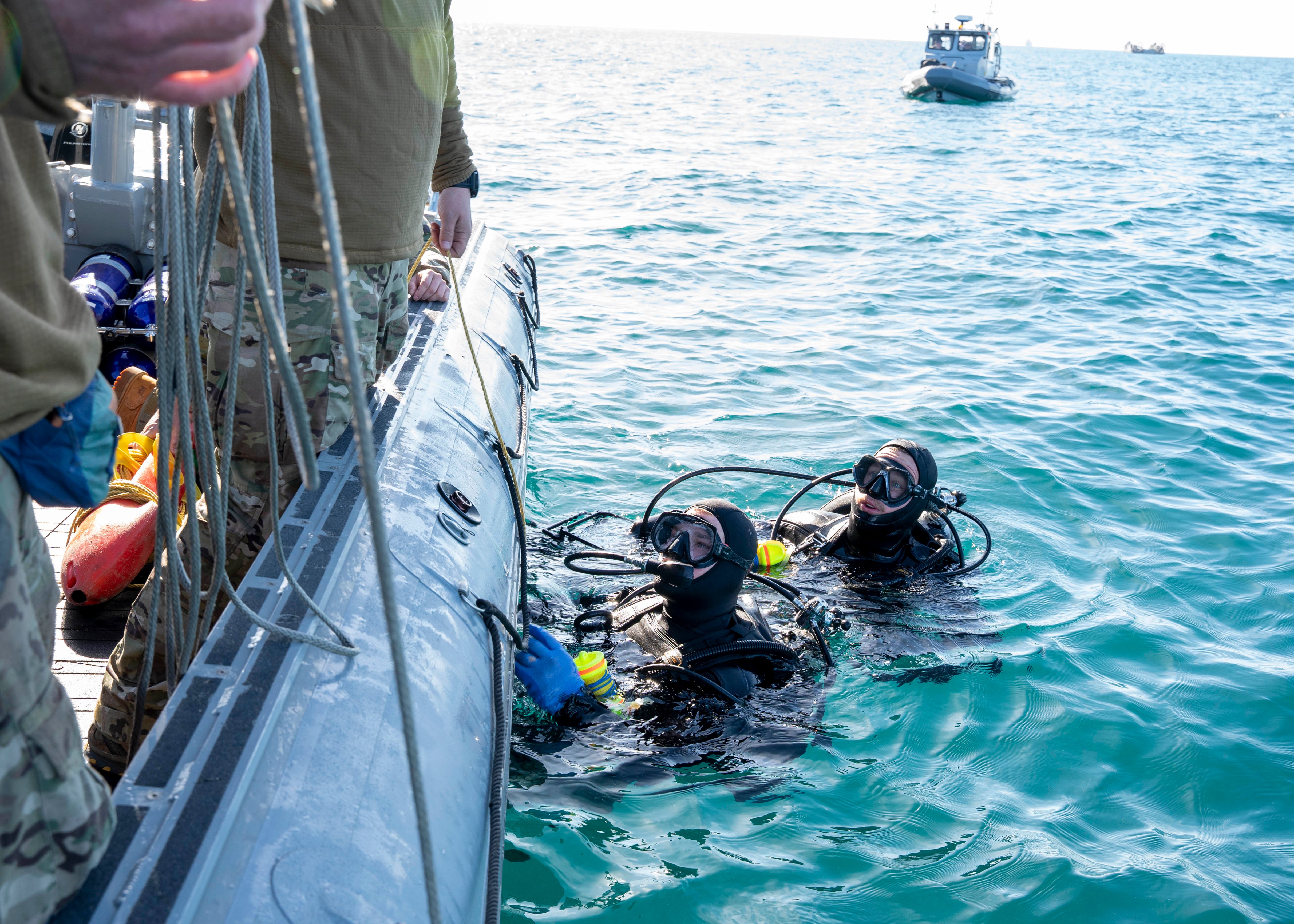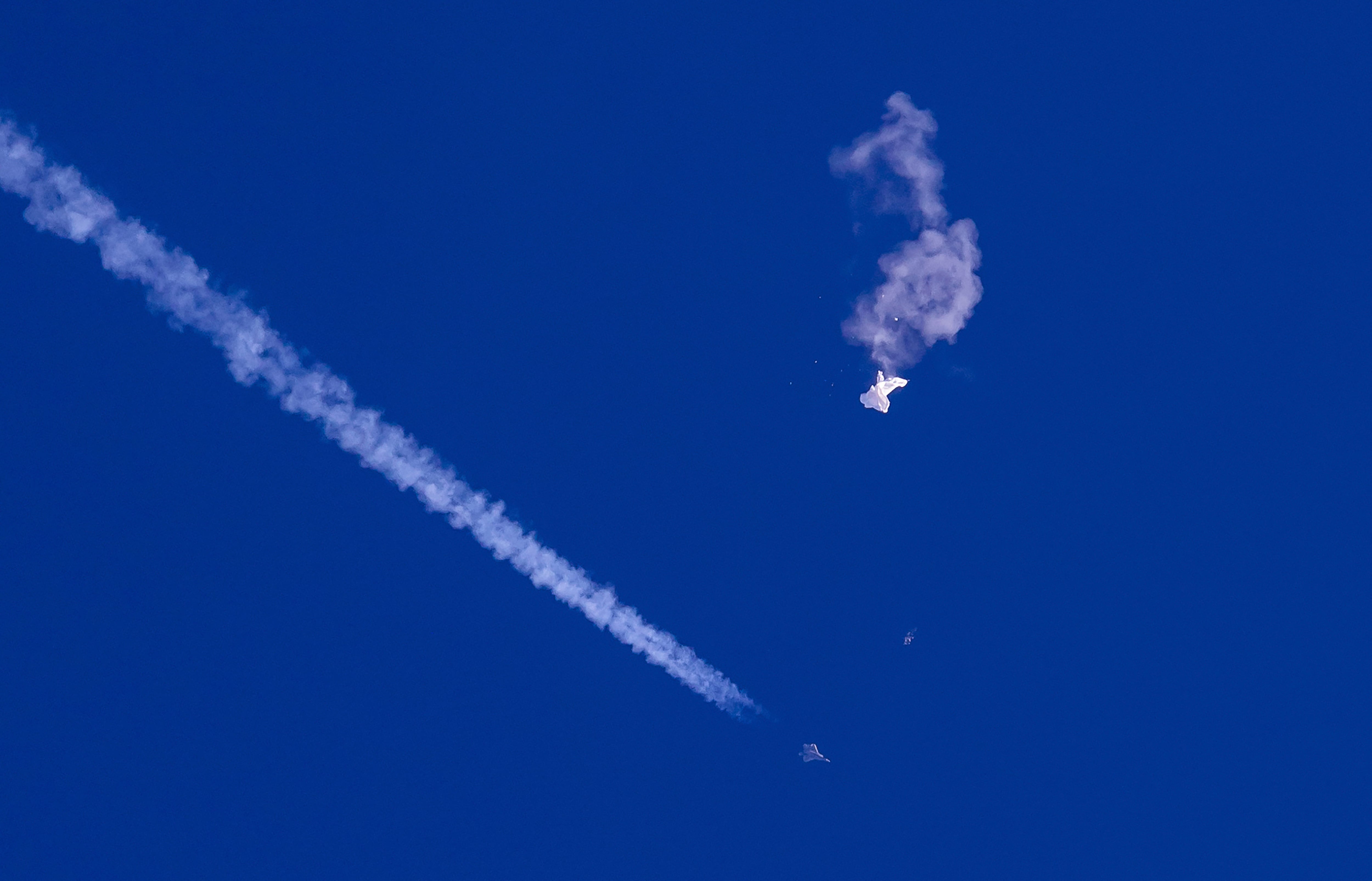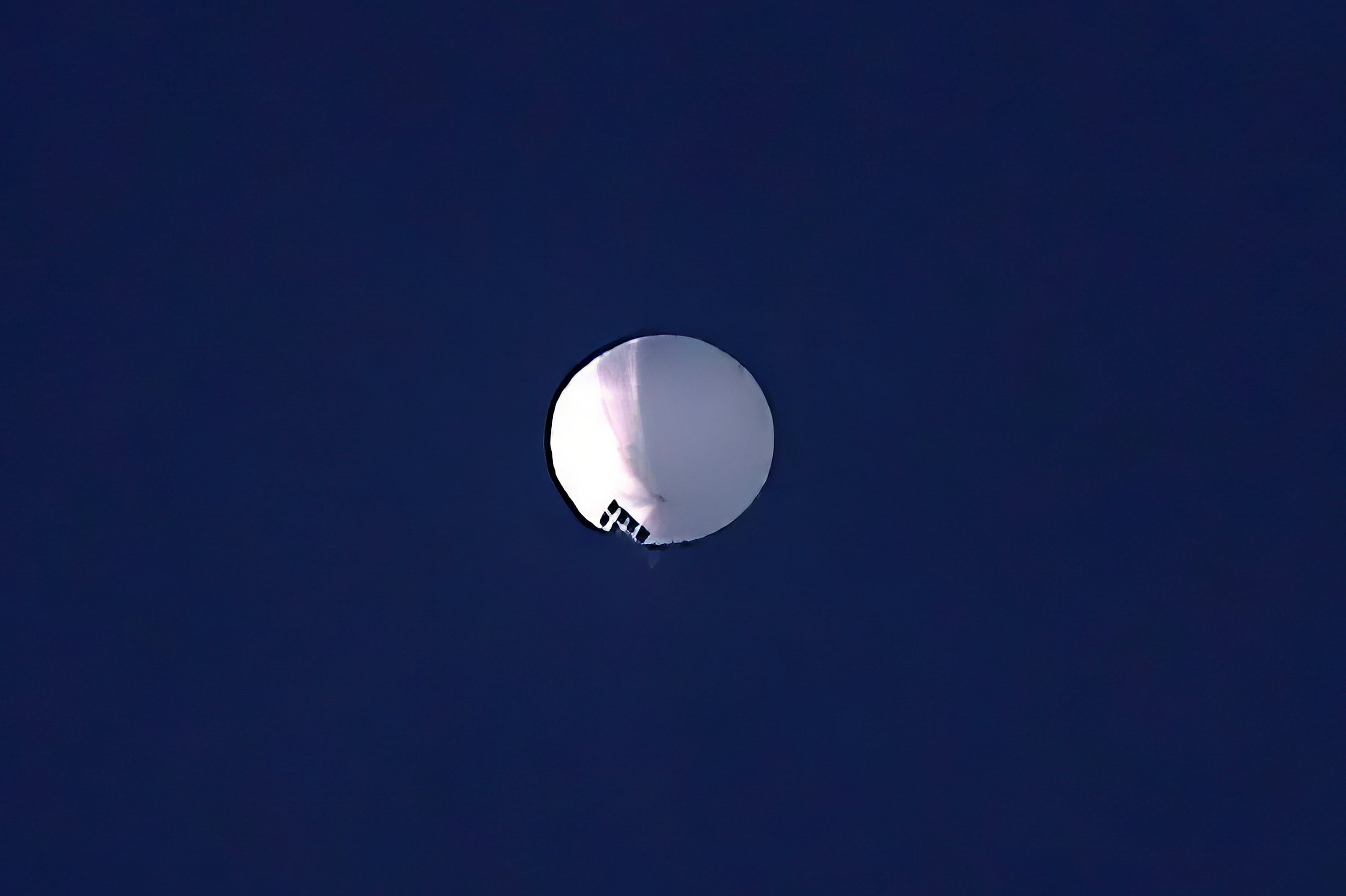SAN DIEGO — For years, national security and military officials have trumpeted the looming threat China poses to the U.S.-led global order.
For just as many years, polls have shown that foreign policy issues rank low on the average voter’s list of pressing concerns.
But the appearance Feb. 1 of the Chinese surveillance balloon that sallied its way across U.S. airspace before being shot down off South Carolina is “absolutely” waking up regular Americans to the Chinese government’s threat to world order, the Navy’s top intelligence official said Wednesday.
At the same time, Rear Adm. Michael Studeman, the head of the Office of Naval Intelligence, said he wished the incident “would be connected to the larger issues at hand when we talk about China.”
Any China hand knows Beijing uses “10,000 ways” to conduct espionage and “penetrate our society,” Studeman said at the annual West naval conference here.
But with the balloon’s emergence earlier this month, Americans “actually get to see it, to believe it, to understand what the nature of the threat is,” he said in response to a Navy Times reporter’s question.
RELATED

Officials said this week that other unidentified objects shot out of the skies by U.S. jets in recent weeks weren’t Chinese in origin, and White House spokesman John Kirby said those objects were “likely benign,” according to media reports.
Studeman lamented the “narrowization of the discussion” about the balloon. The flag officer didn’t mention the domestic politics roiling around the Chinese balloon’s incursion, but it has predictably become a partisan issue in America, with some Republicans bemoaning the fact that President Biden didn’t shoot it and its massive payload down sooner.
Studeman said he would have liked to see the balloon’s appearance over America tied to other Beijing actions that seek to subvert and rewrite international law.
“So, in this case, the Chinese aren’t talking about it right now, but I can guarantee you if they had been successful with operating all over the place — and they had been for quite some time — that they’d be talking about redefining what sovereign airspace really is,” said Studeman, a longtime China hand who speaks Mandarin.
“They would intend to argue the fact that it’s not sovereign airspace, they’re going up to 60-to-80,000 feet and maybe beyond … because their intention is to go ahead and then use that access to do a variety of different functions to communicate, to sense, to have electronic warfare capability on those things, to have weapons systems on those things,” he added.
The balloon is tied to Beijing’s constant attempt to gain an advantage and “bend or break international law,” Studeman said.
A Chinese attempt to redefine the parameters of sovereign airspace would parallel how Beijing has attempted to claim jurisdiction over the international waters of the Taiwan Strait and the South China Sea, leading to Navy freedom of navigation operations, or FONOPs, there.
“And so the theme is, what is the Chinese approach, how [do] they intend to further exploit their access in our open society?” he said. “How are they bending international law and norms in their favor? And who is holding them to account?”

Studeman also wants to see more intelligence released to the public that proves Beijing’s nefariousness.
The national security world should recognize that the declassification of information before the Russian invasion of Ukraine wasn’t a one-off, and that it is possible to protect sources and methods while informing the public about such developments, he said.
“Frankly, I’ve been in a struggle for some time with the intelligence community to be able to actually downgrade some of the things that we see that are truly damming with regard to what the Chinese are doing and why they’re doing it and get those out into the public domain, so we can actually show what the Chinese intentions and activities really are,” he said.
RELATED

“This is hard for the intelligence community,” he added. “It’s not in our DNA to release things out in the public. We have to protect sources and methods, and there’s a way to do that while at the same time exposing what is really going on across so many different fronts.”
Free people in free societies need to have informed conversations about what Beijing is up to, Studeman said.
“And the people that hold those conversations need to feel comfortable with knowing exactly where the line is between what they can say and what they can’t say,” he said. “And that line, frankly, is very blurry, and people step away off of it because they’re scared of actually revealing something that they shouldn’t, or talking out of school. And so this is about leadership giving people the right to execute their own authority and empowering them with the understanding and the tools.”
Geoff is the managing editor of Military Times, but he still loves writing stories. He covered Iraq and Afghanistan extensively and was a reporter at the Chicago Tribune. He welcomes any and all kinds of tips at geoffz@militarytimes.com.





